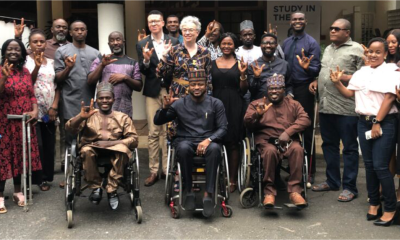National
Women attorneys demand establishment of electoral offense commission

By Hannah Nathan, Warri
In a bid to aid the prosecution of electoral offenders, the International Federation of Women Lawyers (FIDA) has renewed call for the creation of an Electoral Offenses Commission.
The call, which is based on the results of the off-cycle Bayelsa State governorship election, would discourage other potential offenders, according to them.
In the group’s concluding remarks on the handling of the Bayelsa governor’s race, National President Amina Agbaje issued the directive.
Agbaje declared, “FIDA Nigeria recommends the following to deepen the democratic process in Nigeria ahead of subsequent off-cycle governorship elections in Edo and Ondo State in 2024, in light of our pre-election, preliminary, and post-election observations/findings during the election.”
“Establishment of the Electoral Offences Commission to facilitate in the prosecution of electoral offenders observed to have committed any form of electoral offence in contravention of the Electoral Act 2022 (as amended) which will serve as a deterrent to other intending offenders”, the Country Vice President/National President, Amina Agbaje said.
She added INEC to “embark on high-level dialogues with key stakeholders including traditional and religious leaders to encourage the participation of more female electorates and citizens, in general, to exercise their franchise at subsequent elections” in light of the below-average voter turnout in the recently concluded governorship election and for future elections in Bayelsa State.
FIDA Nigeria reported that it saw from official INEC results that, out of the state’s total of 1,056,862 million registered voters, 291,212 people cast ballots in the election.
This shows that, for the first time since 2011, only about 27.55% of registered voters cast ballots, with roughly 72.45% choosing not to participate in the election process. Compared to the governorship elections in 2019, 2015, and 2011, when roughly 54.83%, 35.15%, and and 78.90% of all voters, respectively, used their right to vote as a result.
This result implies that a greater number of female voters—roughly 46% of all female registered voters in this election—did not use their right to vote.
Threats and acts of physical violence committed prior to the election, in our opinion, work to discourage women from voting. Thus, in order to guarantee a rise in the number of voters in upcoming elections, all parties involved must enhance their voter education efforts, Agbaje continued.
The federation applauded the election’s overall results, noting that they were consistent with its initial statements and conclusions, which said that the polls were largely peaceful and that INEC and the security agencies had provided sufficient security and logistical support.











